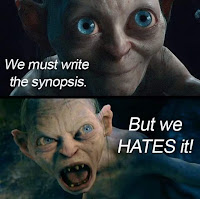Recently, I’ve been working on the sequel to my murder
mystery An Unseen Current. While
thematically not that different from my other books (a young person struggles
with unusual circumstances while navigating the choppy waters of family, love,
and friends), mysteries bring a special level of challenge to the mix. For one thing, people expect clues. Oh, there’s a dead body? Well, writer, where are the clues? Chop, chop! Produce the clues!
However, it’s not just about clues; it’s about when to reveal
those clues. Too early and readers are
bored because they already solved it.
Too late and it seems like the author is cheating and wedging
information to justify who the killer is at the last second. Then, even if the writer does pop a clue in
the right place, she can’t be too precious about it. The author can’t present it on a silver
platter with a neon arrow stating: Clue Here!!
To accomplish the correct where and when of clue placement requires a
stronger outline than other genres. And
that means that I must do what every writer hates doing—not writing.
Outlining and the synopsis are vital to a successful book. But they aren’t the FUN part of writing. The fun part is churning out scenes and
spending time with the made up people who populate my brain. Outlining requires problem solving and all
the leg work of deciding back stories and motivations and the literal who,
what, when, where and why of who was murdered. (It was Professor Plumb in the
Library with the Candlestick, in case you were wondering.) But mostly it leaves me thinking: Are we
there yet? What about now? Can I start
writing now?
Fortunately, the answer is getting closer to being yes. So wish me luck as I work out the kinks of how the dead body
ended up behind a bar in Anacortes.
You never know what’s beneath the surface.
When Seattle native Tish Yearly finds herself fired and evicted all in one afternoon, she knows she’s in deep water. Unemployed and desperate, the 26 year old ex-actress heads for the one place she knows she’ll be welcome – the house of her cantankerous ex-CIA agent grandfather, Tobias Yearly, in the San Juan Islands. And when she discovers the strangled corpse of Tobias’s best friend, she knows she’s in over her head. Tish is thrown head-long into a mystery that pits her against a handsome but straight-laced Sheriff’s Deputy, a group of eccentric and clannish local residents, and a killer who knows the island far better than she does. Now Tish must swim against the current, depending on her nearly forgotten acting skills and her grandfather’s spy craft, to con a killer and keep them both alive.
Bethany Maines is the author of the Carrie
Mae Mysteries, Wild Waters, Tales
from the City of Destiny and An
Unseen Current. You can also view the Carrie Mae youtube video
or catch up with her on Twitter and Facebook.
















